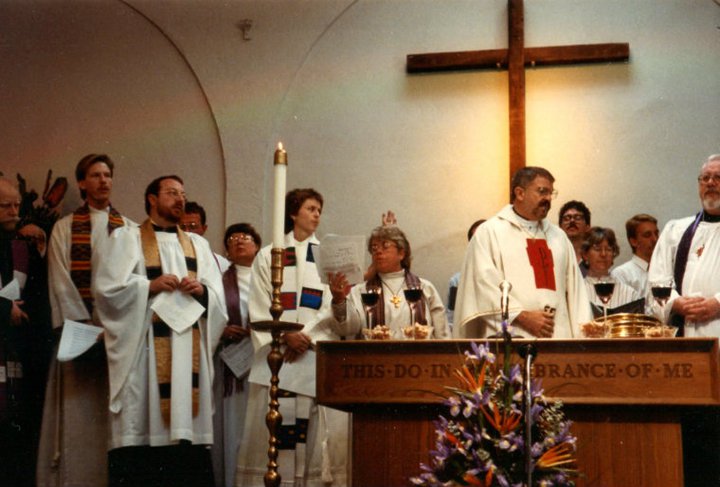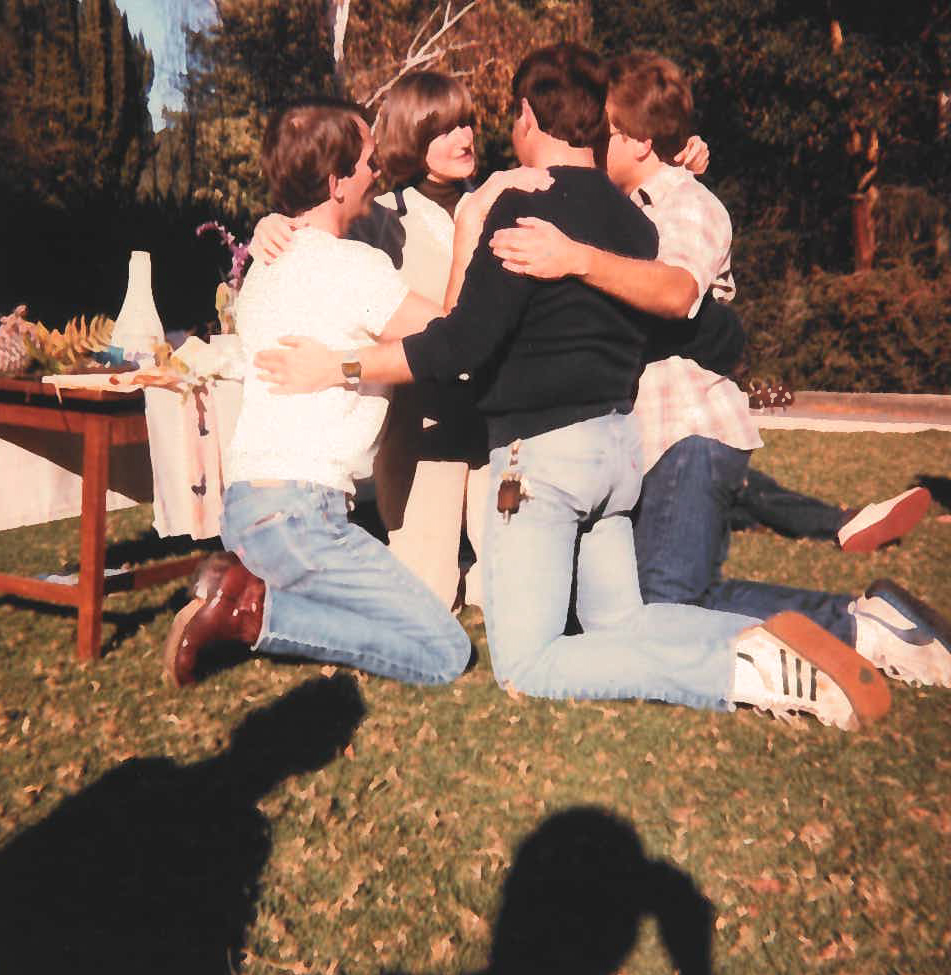Liturgy of the Eucharist

MCC clergy consecrate communion, February 21, 1988. Photo by Audrey Lockwood. Courtesy of the Kittredge Cherry and Audrey Lockwood Collection.
Christians of all stripes have long fought over who is eligible to participate in this most formative of rituals. Most require that participants be baptized, or ritually recognized as members of the Christian community, in order to receive communion. Some require theological or political conformity. Others use communion as a way to mark the status of a person’s soul – freely shared with those deemed sinless or adequately repentant, denied to those considered sinful or beyond the bounds of communal norms.
24th Anniversary Communion, Part 1. April 24, 1994. MCCSF Archive.
18
Communion was part of the very first MCC worship service in Troy Perry’s home in 1968. Perry believed this church of social and religious outcasts could demonstrate the genuineness of their faith by making communion available to anyone who wanted to receive it. Some MCC participants had not received communion for years before attending an MCC service. MCC also marked communion by inviting people to receive communion by themselves or with any configuration of families or friends that was meaningful to them. Same-sex couples who could not be married received communion together in church, holding hands publicly and having their relationships recognized and sacralized.
24th Anniversary Communion, Part 2. April 24, 1994. MCCSF Archive.

Rev. Jane Spahr, Garson Wheatley Thomas (d. 1985), and two unknown men at an MCCSF neighborhood leadership retreat. September 1981. Photographer unknown. Courtesy of the Jane Adams Spahr Collection, Graduate Theological Union.